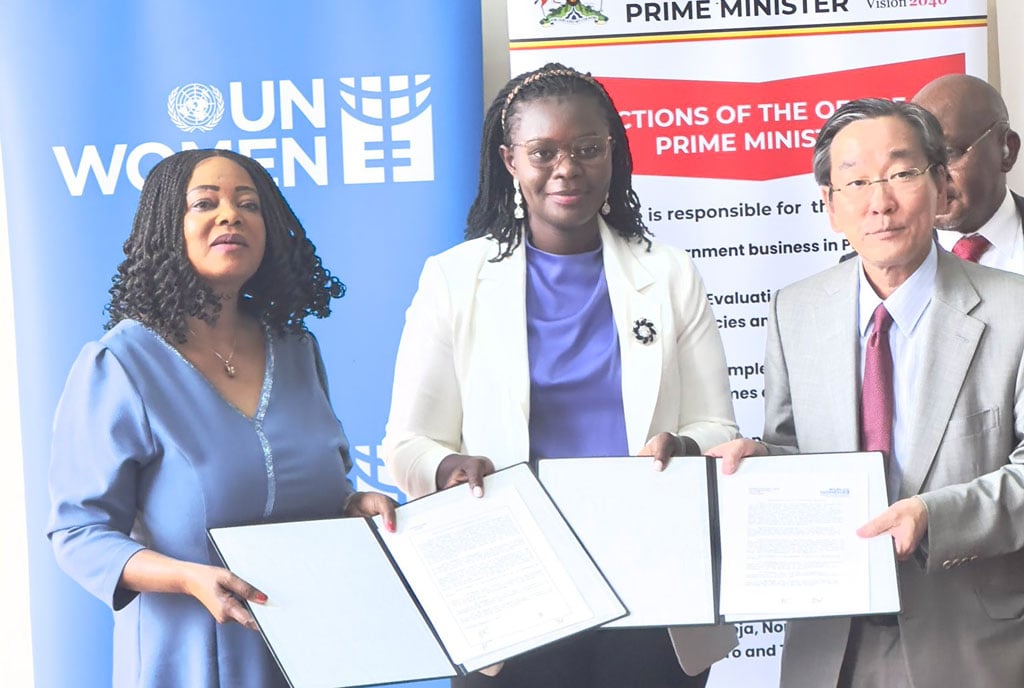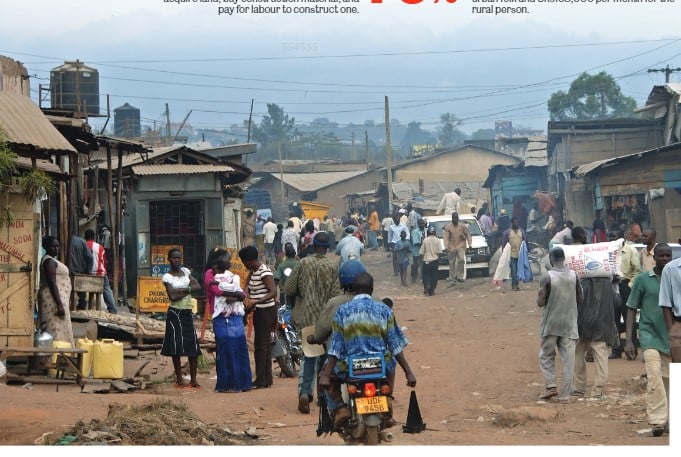Govt seeks Shs36.6b to equip refugees with vocational skills

Some of the refugees in class at Canrom primary school in Kiryandongo District recently
What you need to know:
- While the World Bank has provided $200 million, the government still requires an additional $285 million to adequately support the refugee population.
The government faces a Shs36.6 billion shortfall needed to equip refugee learners with vocational skills, threatening efforts to help them secure jobs and become self-reliant.
This funding gap has been worsened by reduced financial support from development partners, who had previously played a key role in supporting refugee education and livelihood programmes.
Without adequate funding, many refugee learners risk missing out on essential vocational training opportunities, limiting their ability to contribute to their communities.
The Minister of Relief, Disaster Preparedness, and Refugees, Mr Hilary Onek, voiced concerns about the growing refugee population and shrinking donor support.
"Uganda used to host around 600,000 refugees and received $300 million (Shs1.1tn) annually in aid. Now, the number has surged to 1.75 million, but we only get $130 million (Shs477.8b) per year, which is far from enough," Mr Onek said.
He emphasised that the Shs36.6 billion is crucial for providing refugees with the skills they need to find employment, particularly since the government's budget is primarily allocated for its citizens.
“We don’t have enough funding for these projects. What we get from donor agencies, including the World Bank, cannot fully address our needs because the demand is so high. Many refugees from South Sudan and Congo have no education or skills, and we must ensure we have the resources to support them,” Mr Onek explained.
He further stressed the importance of skilling refugees to reduce the strain on the government.
“The food is not enough for them, and they lack adequate livelihoods. Even as Uganda, we don’t have enough for ourselves, so the best thing we can do is train them so they can attain skills and find jobs,” he added.
While the World Bank has provided $200 million, the government still requires an additional $285 million to adequately support the refugee population.
Mr Onek made these remarks during an interview with Daily Monitor at an event marking 10 years of FCA in Uganda on Tuesday in Kampala.
Of the 1.75 million refugees in the country, 60 percent are children, making education a critical need.
However, development partners at the event expressed concern about the low progression rates of refugee learners from primary to post-primary education.
Data shows that while 51 percent of refugee children access education, only 10 percent reach secondary school, and just 1 percent advance to tertiary institutions.
The FCA Country Director, Mr Wycliff Nsheka, highlighted the challenges facing refugee learners.
“Many lose interest in continuing to post-primary levels due to a lack of opportunities. Some are even married off as young as 13 years old because of cultural practices,” he said.
He also pointed to the shortage of secondary schools in refugee camps, noting that development partners have focused mainly on pre-primary and primary education, leaving secondary education underserved.
“There are very few secondary schools in refugee camps, and secondary school teachers are hard to find because many don’t want to work in remote areas,” he added.
Uganda’s Ambassador to the Nordic States Margaret Offesker called on development partners to improve the quality of infrastructure in refugee schools.
FCA has made significant infrastructure improvements, constructing 826 classrooms, 225 teacher houses, 920 latrines, and 195 other buildings, such as dormitories, laboratories, and libraries.
Uganda’s Ambassador to the Nordic States Margaret Offesker called on development partners to improve the quality of infrastructure in refugee schools.
“Many pit latrines have been constructed, but we should aim for flushing toilets in schools to enhance the quality of education,” she said.
Most Rev Tapio Luoma, the Archbishop of the Evangelical Lutheran Church of Finland, commended Uganda for its continued hospitality toward refugees, praising the government for its compassion and humanity in welcoming those in need.




